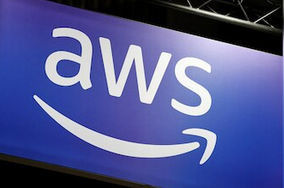Amazon (AWS) Outage Exposed Cloud’s Fragility to Global Economy: When Technology Falters…

It started as a few glitchy Zoom calls on a Monday morning. Then Venmo payments froze mid-transfer. WhatsApp messages hung unsent. Within hours, a digital hush spread across the world, not from silence, but from systems stalling in unison. The culprit is an Amazon Web Services (AWS) outage in the company’s East Coast region, one of the most critical hubs of the global internet.
More than 2,500 companies, from small startups to household names reported disruptions, according to Downdetector. Millions of users were affected worldwide. Amazon later confirmed it had restored operations by evening, but the ripple effects lingered. Many services faced backlogs, proving that in the digital economy, recovery is never instant.

This was no minor hiccup. It was the largest AWS outage of the year, and it reignited a growing concern among tech-innovators, fintechs, e-commerce, the organised private sector, policymakers and businesses alike, noting a huge concern the collective dependence on a handful of tech giants to keep the world running. These tech-giants are the invisible infrastructure of modern life.
The internet feels boundless with infinite clouds, endless data, connections everywhere, etc. Then again, its technical foundations are surprisingly concentrated. Three companies that are front-running the world’s ‘techcloud-genie-carpet’ are Amazon, Microsoft and Google. These companies host the majority of the world’s online infrastructure. Every video call, mobile payment, e-commerce checkout, etc., often relies on one of their servers.
Once upon a time, businesses managed their own data centers. That model faded as cloud computing promised cheaper costs, faster scaling and simpler management. This is the tradeoff, for a sense of centralization. That’s why, a glitch in a single region of Amazon’s massive cloud, even any massive cloud platform, can knockout thousands of independent systems offline, in a digital-domino effect.
Many families and captains of industries felt the digital-daze, as the outage meant interrupted work-from-home routines, zero virtual meetings, conference meeting calls disruption, and so on. Parents juggling remote meetings suddenly lost video access. Small business owners couldn’t process payments or contact suppliers. Some people felt eerily familiar, like the early days of the pandemic, when global systems cracked under stress.
The AWS failure also carried a massive economic echo. Like when global supply chains got strained by COVID-19. With this recent happening, digital infrastructure that has a perfect seamless algorithm philosophy, streamlined and efficient, are also sometimes brittle at same time. Most businesses minimize redundancies to cut costs. But when a major tech-service provider falters, there’s little cushioning of work process-flow. In today’s world, even if a small/big business wants to avoid the cloud to self-manage their data centre, they you can’t considering cost and security implication.
This web of interdependence reveals a paradox, the more connected the world becomes, the more vulnerable it is to single points of failure.
Outages like this one blur the line between technical mishaps and geopolitical risk. Governments depend on cloud services for data, defense and communication. Regulators in the US and Europe have started questioning whether such concentrated digital infrastructure poses a national security threat.
Amazon on its part, has promised a full investigation and lessons learned. The company’s track record shows outages are rare. Though, a disruption 2021 caused similar global chaos. Still, the question remains whether rare is good enough when the stakes are this high.
The AWS outage may soon fade from headlines, but its warning will not. Beneath every app, transaction, messages and calls lies an invisible network that hums with the heartbeat of the global economy. And as digital blackout proved on Monday, that heartbeat skips more easily than we would like to believe.









